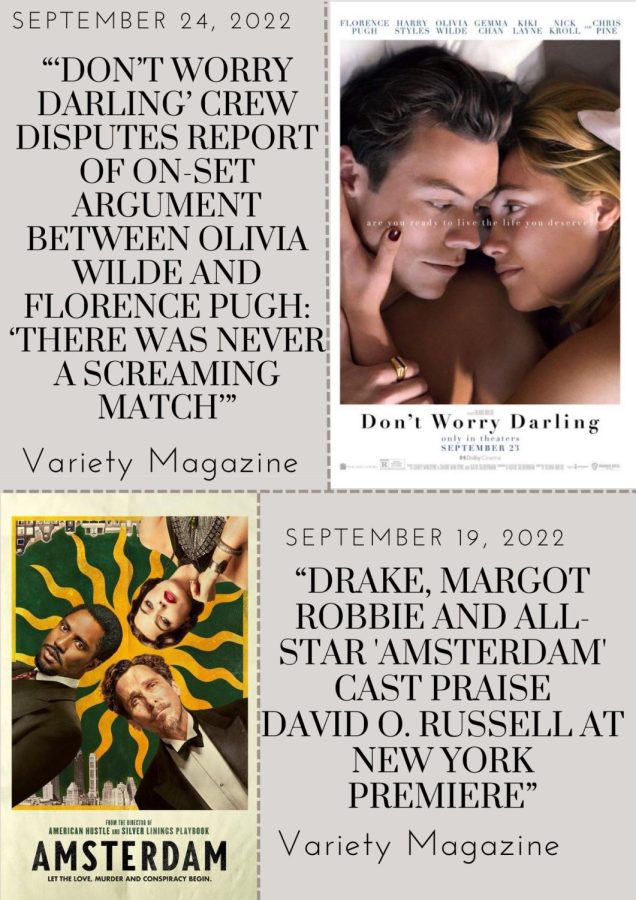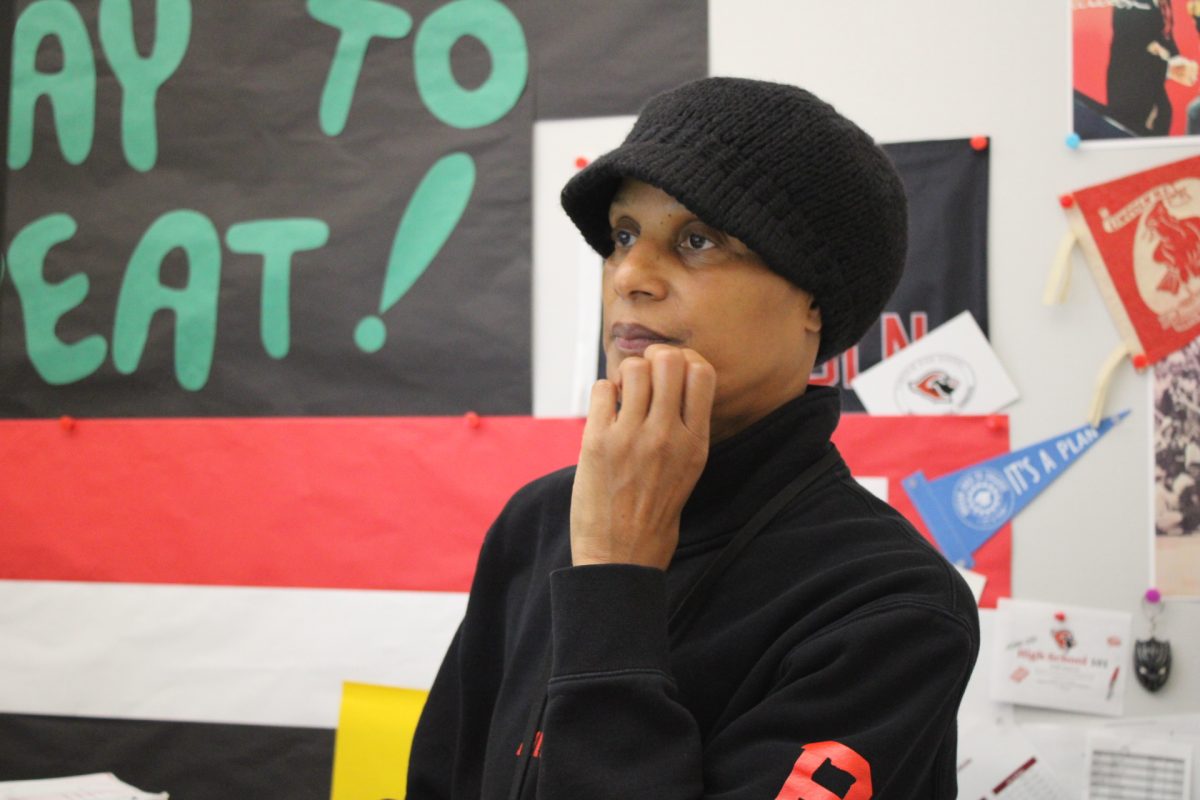Staff Essay: What the “Don’t Worry Darling” drama says about how Hollywood treats women
Headlines about Olivia Wilde’s “Don’t Worry Darling” and David O. Russell’s “Amsterdam” illustrate contrasting focuses on the two directors. Men and women who work in Hollywood are often treated differently by the media.
October 23, 2022
Trigger Warning: This article contains mentions of physical and sexual assault
Although an argument can be made in defense of the proverbial, “there’s no such thing as bad publicity” Hollywood tests the limits of this claim time and time again. A recent focus of the media’s attention, the new psychological thriller “Don’t Worry Darling,” has dominated headlines for weeks. The coverage serves to show the glaring difference between the way men and women are treated in Hollywood, both behind the camera and in front of it.
Predating its release, news outlets, tabloids and countless social media users had something to say about director Olivia Wilde, director of “Booksmart,” and her relationship with actors Florence Pugh, Harry Styles and Shia LaBeouf. The controversy centered around Wilde’s attempt to keep LaBeouf, who was sued for sexual battery and assault, in the movie. Instead of the focus being a condemnation of LaBeouf for his actions, many shifted the blame to Wilde for seemingly supporting him. At the same time, alleged drama between Wilde and Pugh, along with her separation from actor Jason Sudeikis, caused a media storm that repeatedly vilified and attacked Wilde.
Wilde’s treatment is heavily contrasted by that of director David O. Russell (“American Hustle” “Joy”) and his new movie, “Amsterdam.” George Clooney and other actors that have worked with Russell have accused him of assault. According to a police report from 2012, Russell even admitted to sexual assault against his 19 year-old-niece. Yet before its release, headlines focused on Russell’s directorial talent. For example the Variety Magazine article about the film’s premier is titled, “Drake, Margot Robbie and all-star ‘Amsterdam cast praise David O. Russell at New York Premiere.” After its release, bad reviews of the movie overshadowed any mention of his offenses. Some bad reviews credit the movie to its actors rather than Russell, like the Telegraph’s Robbie Collin and his review titled “Why Margot Robbie’s Amsterdam bombed so badly.”
Turning a blind eye to even the most atrocious acts from male celebrities is nothing new in Hollywood, with people like Woody Allen, Marlon Brando and Roman Polanski celebrated by film critics and award shows despite widely known moral and criminal offenses.
On the big screen, famous women are also portrayed differently than men. Baz Luhrmann’s biographical picture, “ELVIS,” released in June, shows a complicated but overall positive image of Presley, struggling between the pressures of fame and his familial obligations. The film glosses over Presley’s faults, barely acknowledging that his wife, Pricilla, was 14 when they started dating, while he was 24. On September 16, Netflix released “Blonde,” a NC-17 rated movie about Marilyn Monroe’s life, graphically detailing tragedy after tragedy and completely straying away from both reality and Norma Jeane’s personhood. For a movie that seemingly condemns Hollywood’s treatment of women, it excessively capitalizes off that very same exploitation.
Luckily, more people are calling out Hollywood’s double standards. In an industry that thrives on controversy and exploitation, the treatment of women is unlikely to change unless we as viewers stop fueling drama in the media and actually commit to taking problematic celebrities off their popularity pedestals.





